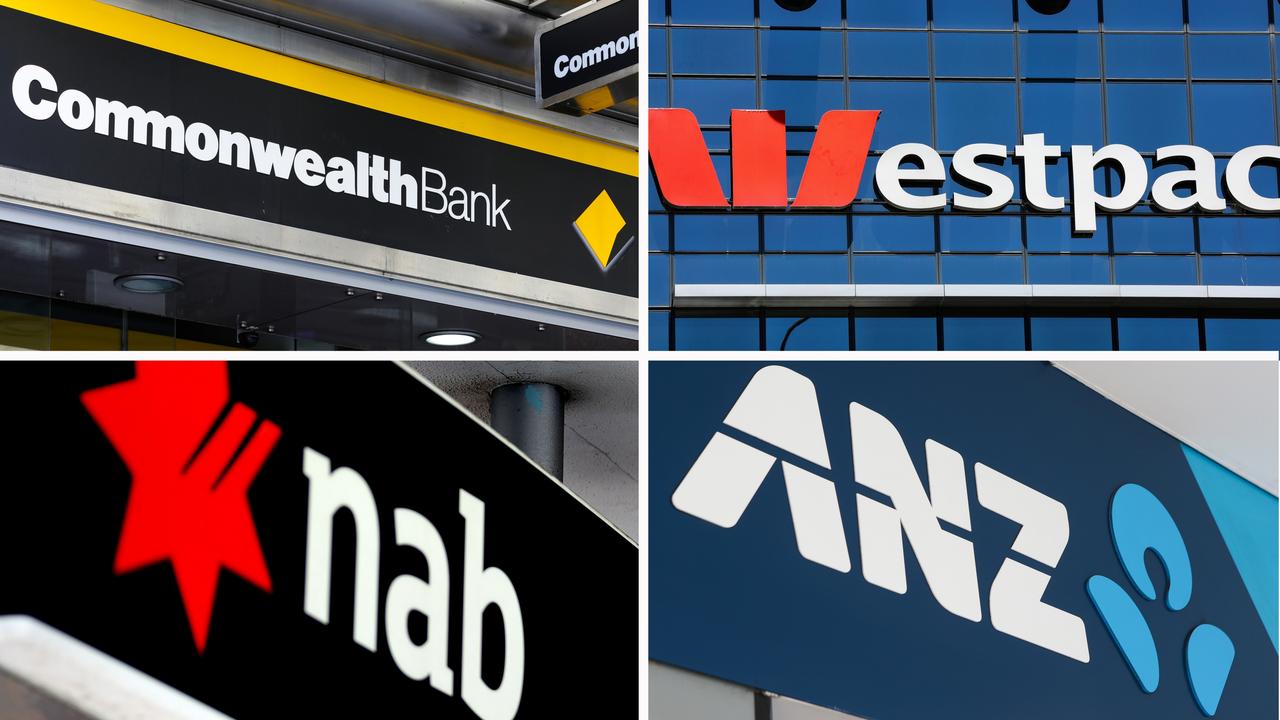Is now a good time to invest in banks?
BANK shares have been on the skids this year - is it the right time to buy? Tim Blue reports

Is now a good time to invest in banks?
WITH bears roaring on equity markets, share brokers failing and banks' bad debt mounting, Weekend Forum thought it timely to take a critical look at the banking sector.
Banks have been an investor's favourite, but no longer, with valuations savagely marked down as credit concerns rise and funding costs tick up. Yet the low share prices look tempting.
We sought the views of four experts on the banking sector, posing the question: is it time for a personal investor to start buying the banks again?
Our respondents are Mark Topy, a banking analyst in Melbourne with share brokers Patersons Securities; Angus Geddes, managing director of Fat Prophets Funds Management; Roger Montgomery, a director of Clime Asset Management; and Brett Le Mesurier, banking analyst at stock broker Wilson HTM.
1. Why invest in banks? Are they still the cornerstone of any investment portfolio?
* Mark Topy, Patersons Securities: Financial markets periodically suffer a stress point.
Australian banks in the global shake-up are better positioned then international banks, but have been sold off more heavily.
Pain in the banking sector will be largely confined to the current half-year. The rebound in domestic banks will be solid. On an 18-month horizon, we believe banks will be up 15 to 20 per cent.
Domestic banks will suffer in the short term. We believe that the impact will pass. Domestic banks are better positioned than international banks. As markets differentiate between actual bank performances, the Australian banks will rebound.
Globally, shareholders are taking the hit. Our view is that this will take 12 to 18 months to deal fully with the issues, but the bottom is close.
Australian bank provisioning will increase from low levels. We see this hike as being largely contained to the forthcoming first-half result. We think the banks will take the opportunity to come clean and clear the decks. This highlights the short-term impact versus the longer-term recovery pattern.
We see a turning point in the second half of 2008 when all the bad news is out and institutional money switches back in. Bank underlying earnings have not disappeared -- underlying earnings are tracking around 11 per cent, underpinning the investment case -- despite higher provisioning.
* Angus Geddes (Fat Prophets): The banking sector accounts for around 25 per cent of the total stock market capitalisation and banks are therefore essential in the construction of any balanced share portfolio.
All the bank stocks have consistently paid dividends for many decades, and currently yield more than 6 per cent and around 9 per cent when you gross the franking credits.
The high yield that bank stocks pay, their consistent track record of growing earnings over the past 15 years, and the fact that they typically are viewed by investors as having defensive earnings have made them very popular to hold in share portfolios since the early 1990s.
* Roger Montgomery (Clime Asset Management): Over the past 15 years, what investors have forgotten is the basic risk associated with banks. They have a lot of assets and a little bit of equity, and when there is a little problem in a large amount of assets, it can be a very big problem in your equity. There is a lot of talk going on about core business. The reality is that they own the whole business, not just the core, and provisions for doubtful debts and bad debts are a very real issue if you own a bank. We are not in favour of banks at these prices.
* Brett Le Mesurier (Wilson HTM): Banks are still a cornerstone investment, notwithstanding that they are under pressure from increased funding costs and declining asset quality. The big banks are gaining more market power at the expense of other credit providers.
Once we get through this credit crisis, the big banks' return on equity and share price multiples will start to pick up again to the levels they enjoyed previously. We can't be certain when that will occur but it probably won't happen until next year.
2. What are the issues facing banks as you see them?
* Mark Topy (PS): There are three key issues of funding costs, credit quality and economic growth. Funding costs have increased, but banks can still access funds. On credit quality and bad debts, we think it's mostly out in the public domain.
Any slowdown in the economy will impact. Let's not forget capital needs, where current capital and provisioning do not suggest this as likely, as Share Purchase Plans and DRP should give enough cover.
* Angus Geddes (FP): The banks are facing a number of headwinds at the moment.
Central to this is the credit crisis, which has placed significant funding pressure on the banks.
Higher interest rates, high-profile corporate collapses, and some corporations in distress as a result of the credit crisis, are likely to bring about a substantial increase in bad and doubtful debt provisions which will flow through and have a negative impact on earnings.
High funding costs will also have a negative impact on earnings.
* Roger Montgomery (CAM): If you are a business selling a product to the US, you are going to find things slowing down - how an Australian bank performs is not just dependent on interest rates but also on where their customers do business.
If they are in China they might be affected, and if they are in the US they might find things getting a little tougher too.
A higher level of corporate defaults could occur in Australia as interest rates rise and the fallout from sub-prime occurs.
There is a risk that the borrowers will not be able to pay it back on the terms that were set out.
It's very hard for the Australian banks to remain completely immune to the credit crunch in the US.
* Brett Le Mesurier (Wilson HTM): The big issues for banks are credit quality, capital and funding. The cost of capital has increased as a consequence of the sub-prime crisis and the related deterioration of credit quality has put more pressure on capital.
If you still like banks, which banks would you invest in and why?
* Mark Topy (PS): Commonwealth Bank, as it has a strong retail franchise, deposit base and home lending position. St George, as it is still primarily a property-secured lender yet has high service levels, and Westpac, which has avoided higher risk lending.
These judgments all take into account the impact of a recession or slowdown, so that price-earnings ratios come down to under 11 times.
Banks may be soft in the run-up to their results, but are oversold at the moment.
* Angus Geddes (FP): I don't believe the time is right to be overweight the banks and that the sector needs another six to 12 months to stabilise.
The fact that there is considerable uncertainty regarding earnings will see the banks underperform for a little while yet.
At some point later this year when the future is more certain, there will be an opportunity to overweight the sector and buy the banks, given that price to earnings ratios are now relatively cheap and dividend yields are high by historic standards.
For now, stand aside and let the dust settle.
* Roger Montgomery (CAM): My view is that the Commonwealth is probably the strongest bank.
All the others have varying degrees of greater risk.
I've always sought great businesses with a high return on equity.
And if there is nothing in sight, then you might as well have funds in cash. It's where you can earn about 8 per cent a year at the moment.
* Brett Le Mesurier (Wilson HTM): I would look at St George Bank, given the simplicity of its business. It has a greater proportion of home loan lending than its peers, low market share in credit cards and the corporate business is less complex than its peers.



